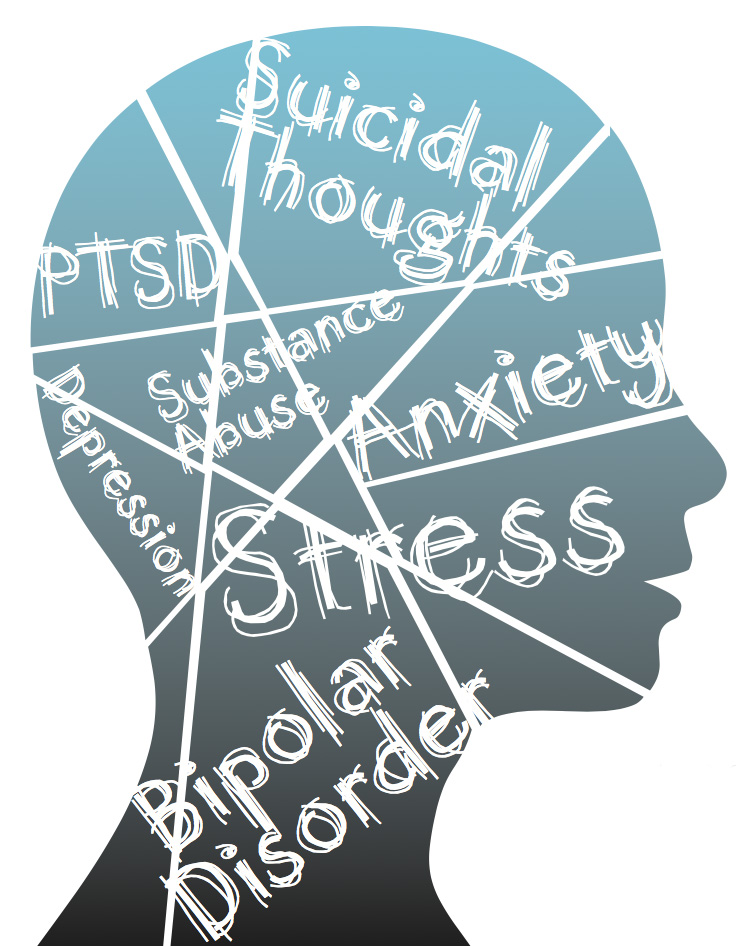What is Psychiatric Disorder
 Your mental health affects every facet of your life: your relationships, your career, your self-esteem, and your ability to communicate effectively and contribute to your community. If your mental health is suffering, then other parts of your life will inevitably suffer, too.
Your mental health affects every facet of your life: your relationships, your career, your self-esteem, and your ability to communicate effectively and contribute to your community. If your mental health is suffering, then other parts of your life will inevitably suffer, too.
Your mental health affects every facet of your life: your relationships, your career, your self-esteem, and your ability to communicate effectively and contribute to your community. If your mental health is suffering, then other parts of your life will inevitably suffer, too.
Despite the severe impact poor mental health can have on day-to-day living, so many people fail to seek treatment for their psychiatric disorders. According to a report from Mental Health America, over 40 million Americans are living with mental illness, yet more than half of them are not receiving proper treatment.
While the stigma associated with psychiatric disorders is real, it’s important to understand that mental illness is a common and highly treatable health condition. Since education is the first step toward erasing stigma, let’s explore exactly what a psychiatric disorder is, and how it can be overcome so you can live your life to the fullest.
A Broad Definition of Psychiatric Disorders
The American Psychiatric Association defines a mental health disorder as a medical problem, “involving:
• Significant changes in thinking, emotion, and/or behavior, and
• Distress and/or problems functioning in social, work, or family activities.”
This is a rather broad definition, essentially boiling psychiatric disorders down to problems that people experience with their minds and their moods. However, there are a number of specific diagnoses categorized under the larger umbrella of mental illness.
Different Types of Psychiatric Disorders
According to Mental Health America, there are over 200 classified types of psychiatric disorders, but some of the most frequently diagnosed ones are:
• Bipolar disorder
• Schizophrenia
• Borderline personality disorder
• Depression
• Generalized anxiety disorder
• Addictive disorders, including drug abuse, alcohol abuse, and behavioral addictions
These diagnoses aren’t mutually inclusive; it’s possible to be diagnosed with one or more simultaneously. For example, addictive disorders often co-occur with another mental health disorder, such as depression or bipolar disorder.
Common Symptoms of Psychiatric Disorders
Identifying mental illness can be challenging since it usually presents itself differently in different individuals. However, there are a few common warning signs to look out for.
• Extreme sadness
• Excessive worry
• Severe changes in mood
• Difficulty discerning reality from delusion
• Isolation and avoidance of friends or social activities
• Sudden changes in sleeping habits, eating habits, or sex drive
• Alcohol or drug abuse
• Suicidal thoughts
If you are experiencing any of these symptoms, it’s crucial to seek out help.
Treatment for Psychiatric Disorders Treatment plans for psychiatric disorders vary depending on the exact diagnosis and the specific needs of the individual patient. Most reputable mental health hospitals will include some combination of the following in their course of treatment: Psychotherapy Counseling sessions may take place either one-on-one or in a group setting with a licensed and trained mental health care professional. The goal of these sessions is to identify troublesome thoughts and behaviors, then develop strategies and coping mechanisms for handling them. Medication Because psychiatric disorders are afflictions of the brain, many conditions may benefit from medication to relieve severe symptoms and help return thoughts and emotions to a manageable state. Aftercare If you’re in residential treatment or a psychiatric hospital, an aftercare plan provides you with a road map for staying healthy when you’re back in the real world.